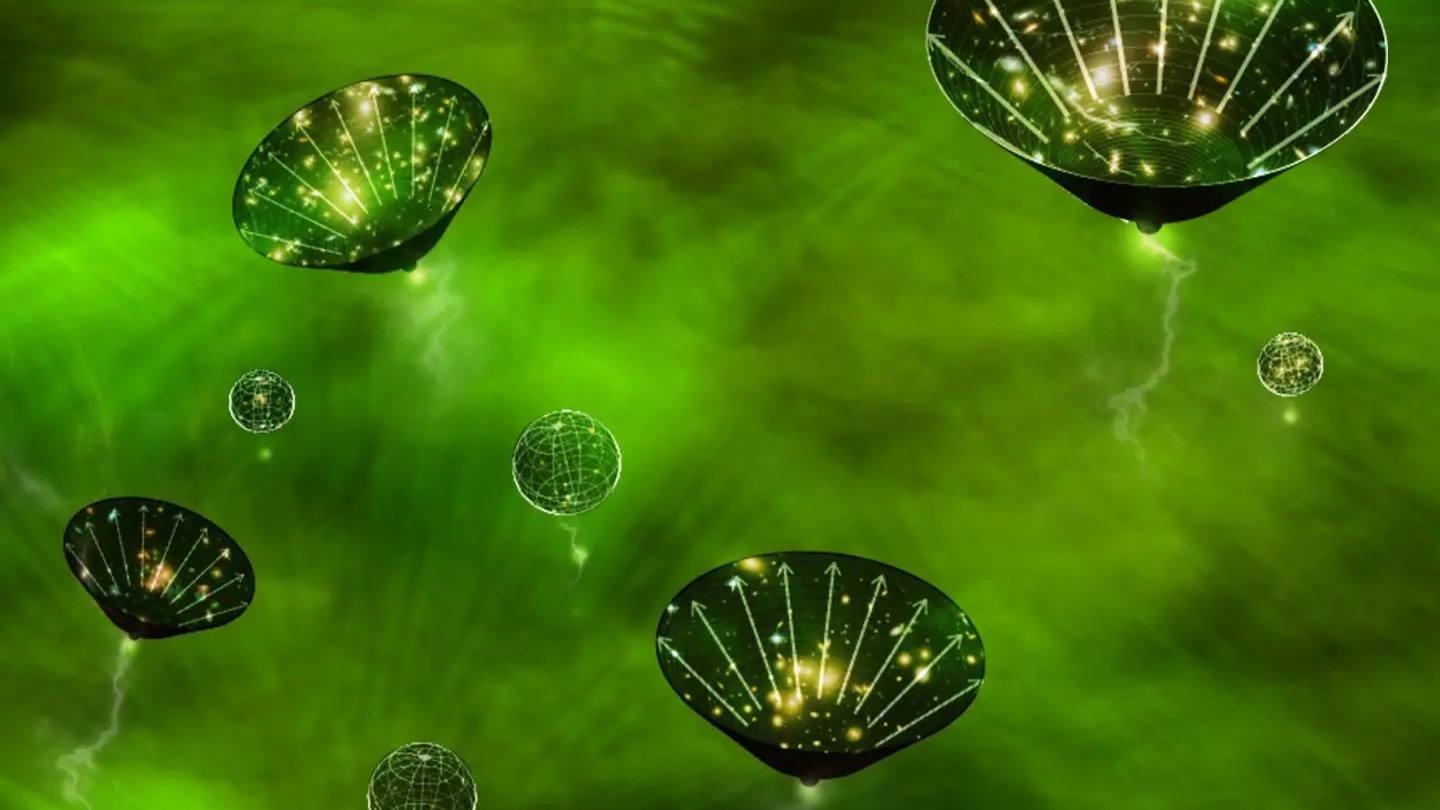Ask Ethan #51: Is Astrology A Science?
And, in general, how would you be able to tell?
Image credit: Mahdi Zamani, via http://www.twanight.org/newTWAN/guests_photos.asp?ID=5001660.
“When I was ten all I knew was that I hated the weird words used to describe whatever it was that was wrong with my brother — to this day I think it all happened because he was overtaken by evil spirits that got loose in that haunted house ride at the carnival that summer. It’s easier for me to make sense of it that way than it is for me to face the other way — reality.”
–Tim Cummings
It’s the end of the week once again, and so — as we always do — I’ve sifted through your questions and suggestions that you’ve sent in, and chosen one to answer in great detail to the best of my ability. The honor this week goes to Atanaz Z., who wants to know about the connection between the stars and our lives here on Earth:
Is there such things scientifically in terms of how the stars align and so forth like the superficial comments about ‘it is your month reading that blah blah will happen?’ Every year, May until end of August is hell for me. Is there any relationship between the stars and alignment and people’s lives?
This is an idea that’s been with us for as long as humanity’s been around, and possibly even longer.
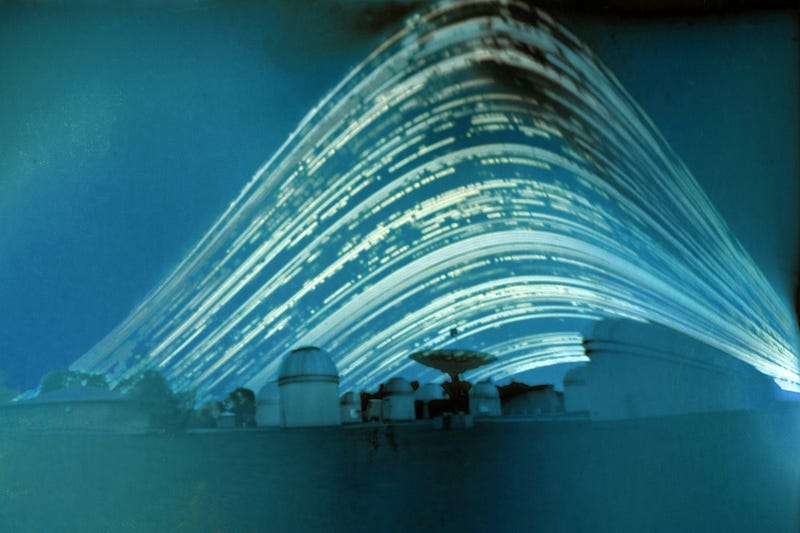
Of course, the closest star to our world — the Sun — has a tremendous impact on our lives. Days and nights are governed by the Earth’s rotation and the Sun’s apparent daily path through our skies, where it rises over the horizon in the east, arcs upwards towards the zenith, and descends downwards, setting in the west.
During the spring and summer, there are more daylight hours and the Sun rises higher in the sky, while during the fall and winter, there are fewer, with the shortest day of the year occurring on the winter solstice.
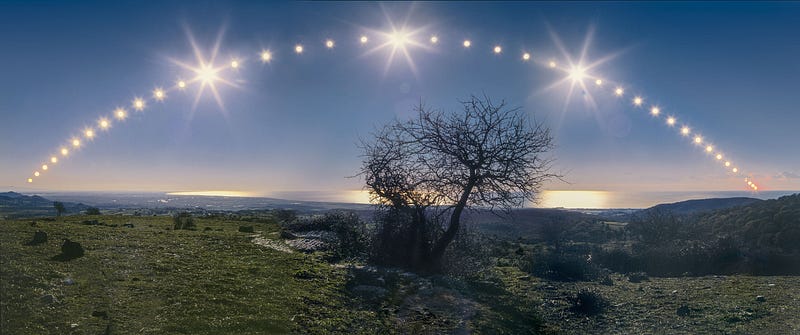
Anthropologists believe that the oldest holiday in all of human history coincides with the time period that occurs a few days after the winter solstice, as it celebrates the fact that the Sun will continue to rise higher in the sky (and not sink below the horizon forever), giving rise to another year.
But what many of us have lost sight of, as light pollution has expanded and truly dark skies have become more difficult to find, is the fact that each day has, as its counterpart, a unique night sky once the Sun goes down.
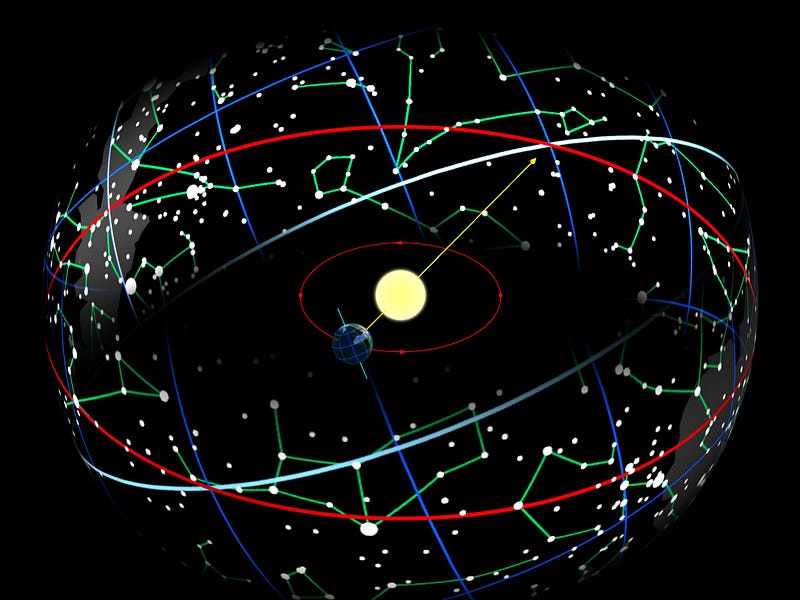
You see, while the ancients could only observe the wonders of a dark, night sky, with the advent of modern science, we can explain why it appears the way it does. We see different stars and different constellations at different times of the year because the Earth orbits around the Sun on an annual basis. Constellations like Orion are prominent from December to March because that’s when the Earth’s night side faces in that direction, while summer constellations like Lyra and Sagittarius are more prominent from June through September.

Before we understood that the stars in our night sky were Suns like our own, before we understood that even the closest among them were located tens of trillions of kilometers distant, and before we understood that the stars visible to us in the night sky are not truly fixed, but move on timescales of thousands of years, we thought that:
- The Earth was the center of the Universe.
- The entire canopy of night rotated about us on a 24-hour basis.
- And that the various stars and constellations that the Sun’s (and Moon’s, and the other planets’) paths appeared to move through were responsible for phenomena here on Earth.
It’s a reasonable conjecture, after all.
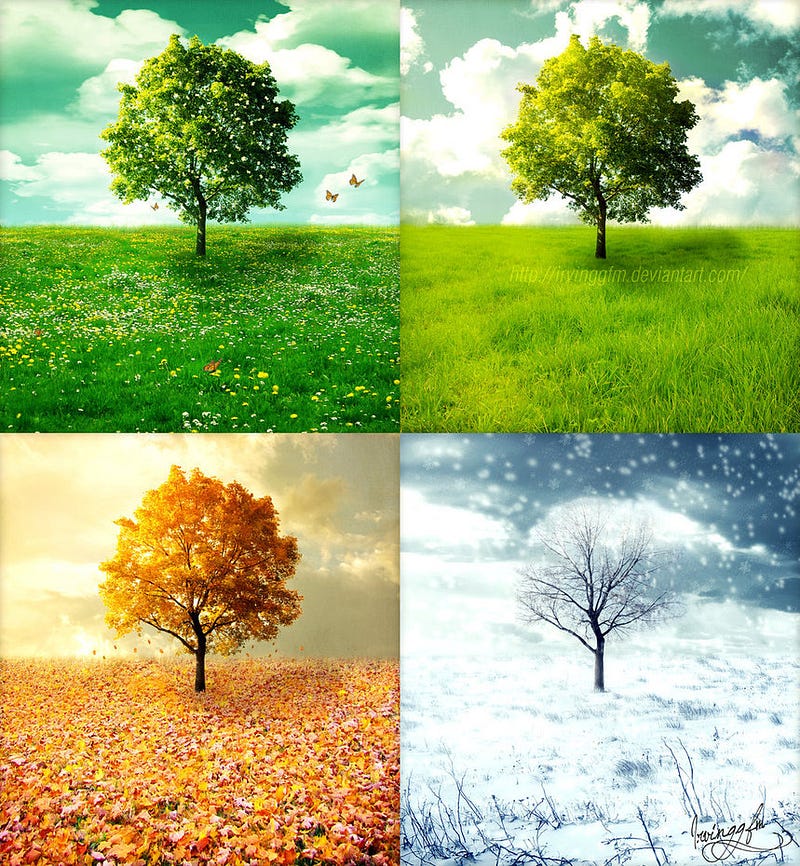
Before we knew about axial tilt, heliocentrism or the nature of stars themselves, much less the basics of a more complex science like biology, how were we to know what caused something like the seasons on Earth? And moreover, when you begin to observe that people behave differently year-to-year or season-to-season, or that people born at one specific time seem to have different traits, what do you attribute it to?

There were a number of possibilities we could have run with to explain these perceived differences, including:
- The diets that pregnant women consumed during gestation,
- Environmental factors concerning what the local terrain was like during someone’s childhood,
- Or, perhaps, something as simple as the ambient temperature or weather.
There’s also the possibility that any perceived differences are not due to intrinsic differences, but differences in the way we treat children. For example, having a child born in mid-January of a given year compete, physically as well as intellectually, against an identical child 11 months younger, could result in a tremendous difference in outcomes when there was none, intrinsically.
As it turns out, different cultures chose different signs or portents, with the Chinese choosing to base their astrology on the year of someone’s birth, and Europeans basing it on the locations of the Sun, Moon and planets relative to the various Zodiacal signs.
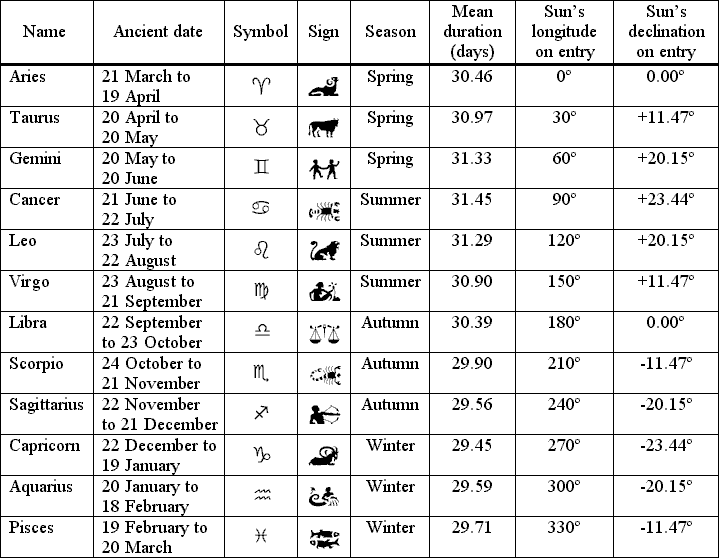
Like many scientific ideas, there’s a reasonable theory and mechanism that astrology is based in: the notion that these carefully measured quantities — the relative positions of celestial objects — can impact everything ranging from our personalities to our temperaments to our fortunes.
But if you want to be considered a science, you need to do a whole lot more than simply have a reasonable sounding idea that corresponds to something that can be carefully measured. Science, remember, is both a body of knowledge and a process, and part of what it includes is:
- The ability to make concrete, testable predictions.
- The ability to either validate or falsify those predictions.
- The necessity of subjecting them to experimental and observational scrutiny.
If we want to know whether Astrology has any scientific merit, that’s what we need to do: we need to demand that it make predictions that can be tested and either verified or falsified by experiment and/or observation.
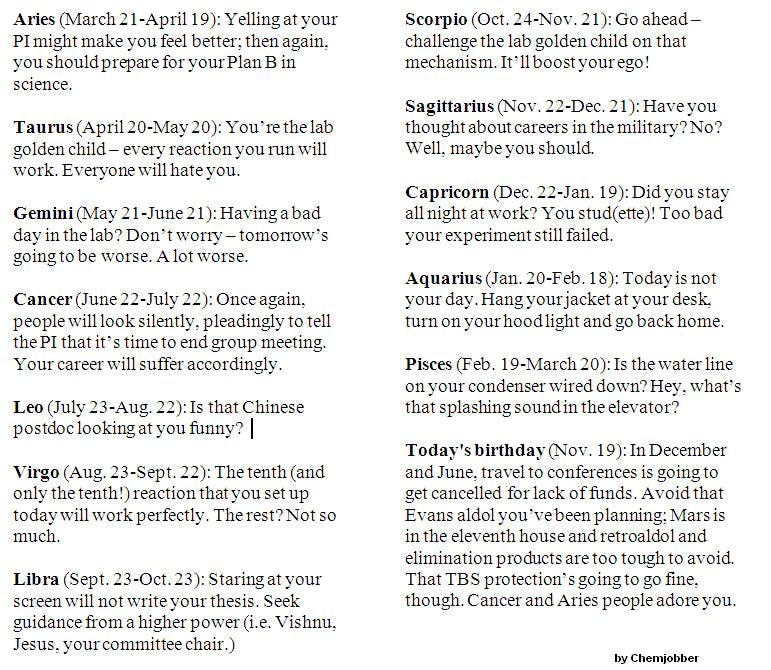
If all you do is make a very general prediction that can apply to anyone — such as a general horoscope column — that fails to meet the criterion of being a concrete, testable prediction. But if, as some forms of astrology do, you make predictions like “people born at a certain time of year are more entrepreneurial than average,” then we’d expect to see, for instance, a larger percentage of self-made millionaires with a certain astrological sign. Similarly, if your zodiac sign makes you, “more likely to command respect and authority,” we’d expect to find a preponderance of those with a certain sign in positions of power and influence.
Astrology may or may not have a scientific basis to it, just as many other hypotheses and ideas (such as the Myers-Briggs personality types, to name one) may or may not, but we can test it and find out!

In 1985, scientist Shawn Carlson wrote a paper on a double-blind test of Astrology (of natal astrology in particular, that’s based around the date-and-time of your birth) and its scientific merits. What his study found was that when subjected to scrutiny, there were no astrologically-based predictions that held up as being statistically significantly different from random chance. It may yet turn out that there’s something to astrology, but the evidence to date has not validated any claims — from the mundane to the extraordinary — that are based in astrological theories.
Falsifiability, at the end of the day, is what separates valid science from pseudoscience. We may yet discover that there are inherent differences in people born at different times of the year, or in different locations, with different diets, at different latitudes, with different environmental or stress factors, when different natural disasters did or didn’t occur, etc. Astrology is just one possible idea to explain the inherent differences (if any) between people born at various times of the year, and one that the evidence doesn’t appear to support.
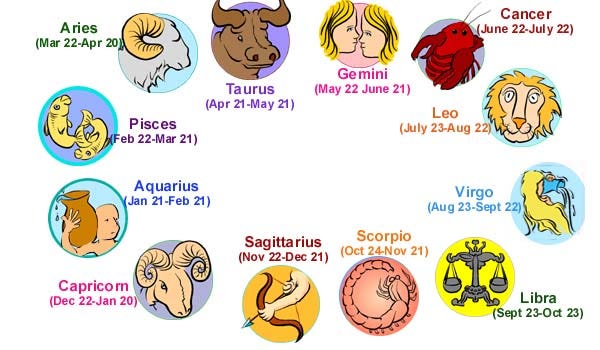
Which disappointed me when I first learned about this information, because I had read a book about astrology that had identified me as having both my Sun sign and my Moon sign as being in Leo (August 3rd, 1978 at 2:05 AM), and I felt that the description of me was very accurate. (Likewise, I felt that my Myers-Briggs type described me very well for about 80% of what it said.) But that — my own personal feeling about how well a description matches me — is not a good piece of scientific evidence on its own; for something to be scientifically valid, there needs to be something empirical to measure.
So we can always keep testing it, keep looking for new information, and to follow the evidence, wherever it may lead. The one thing we mustn’t do, as it’s the one thing that science is designed to protect us from, is to simply give the idea credence because it’s either been around for so long, because it comes from a trusted authority figure (after all, Ptolemy and Kepler were both astrologers), or because we want it to be right. We need to ask it questions, subject it to skeptical scrutiny, and go wherever the evidence takes us.
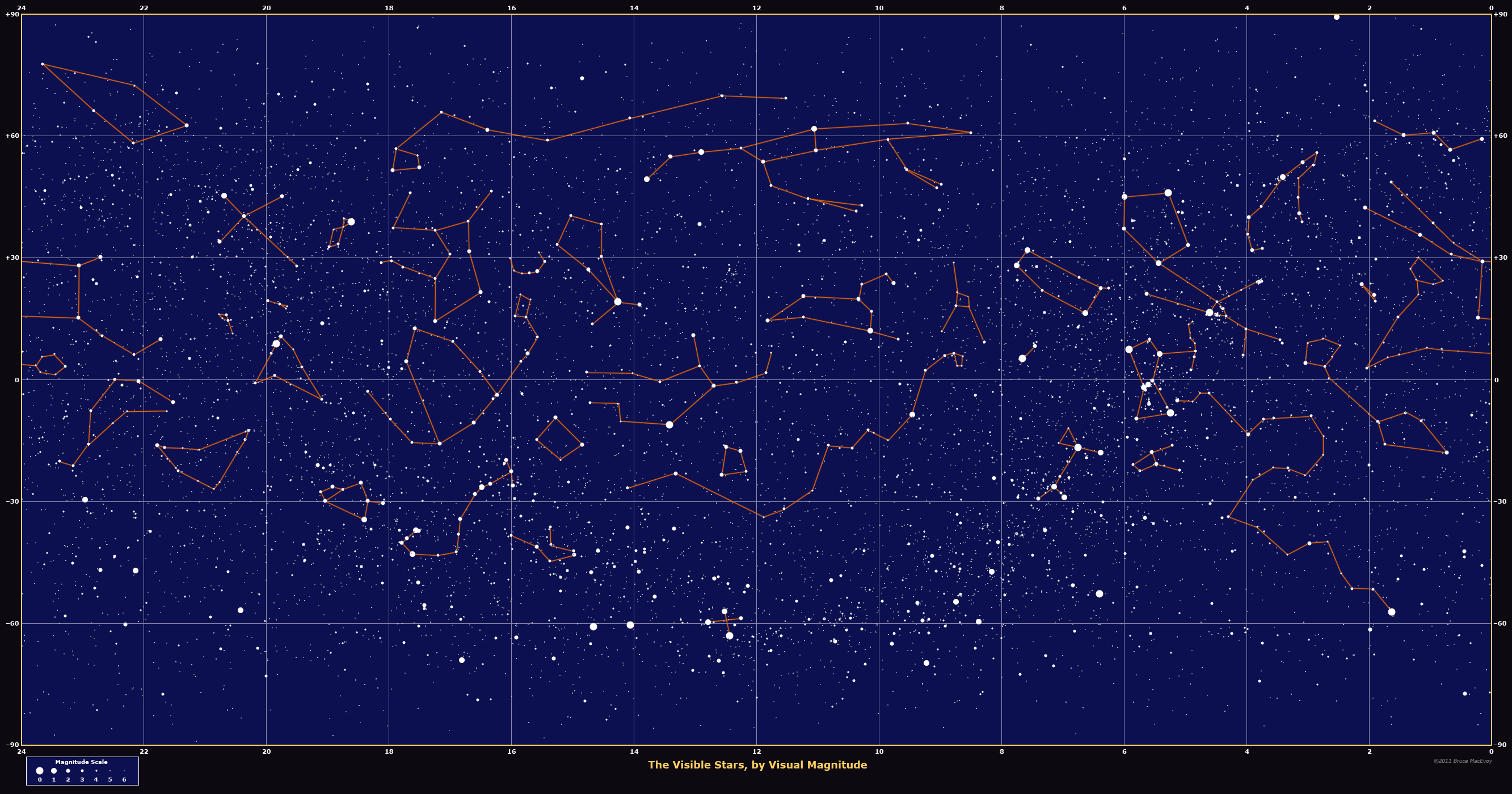
The Sun determines the seasons but not our temperaments, the Moon’s phase determines the tides and the behavior of certain nocturnal animals but not our menstrual cycles, and the locations of the planets account for small changes in one another’s orbits, but not for our behavior.
So I’m sorry to disappoint you, Atanaz. If May through August is hell for you every year, there may be a reason for it, but to the best of our scientific knowledge, we can’t blame the stars — or anything out-of-this-world — for your plight. Thanks for a good question that really made me think (and research it), and for even more information on the scientific validity of astrology, there’s a (truly excellent) Wikipedia page on the topic that I highly recommend.
Have a question or suggestion you’d like to see featured on Ask Ethan next? Send it in, as next week will mark a full year of Ask Ethan. I can’t wait!
Agree? Disagree? Leave your comments at the Starts With A Bang forum here!



